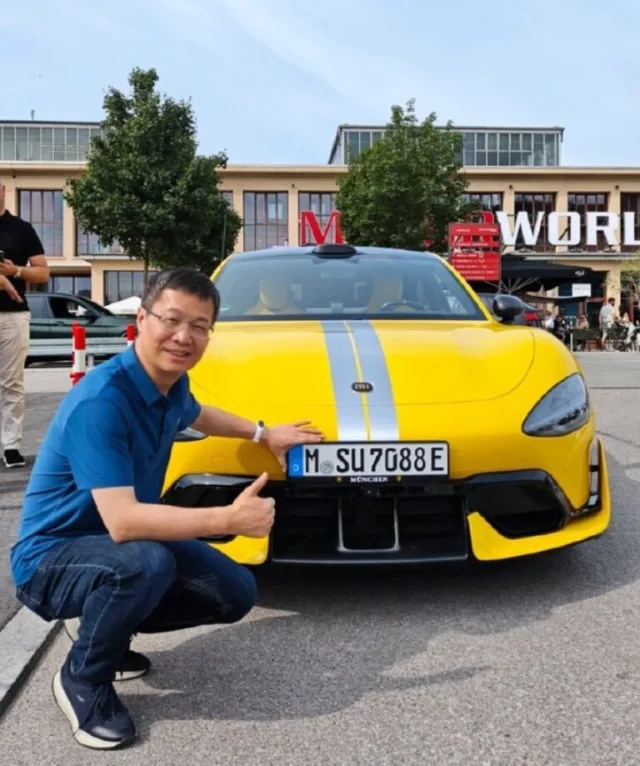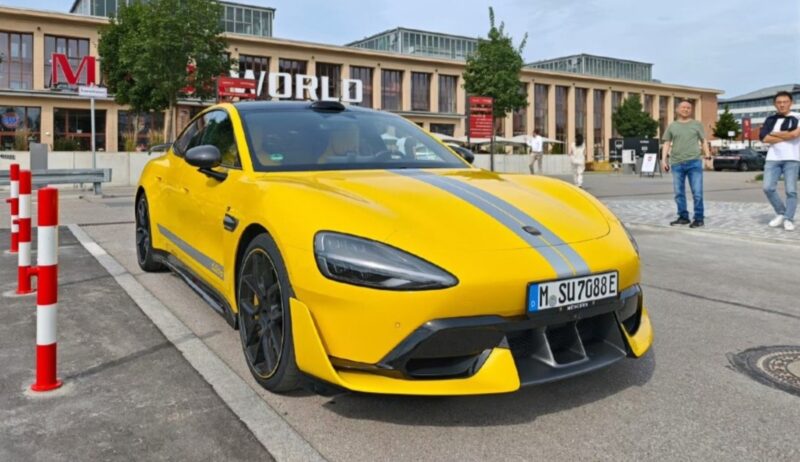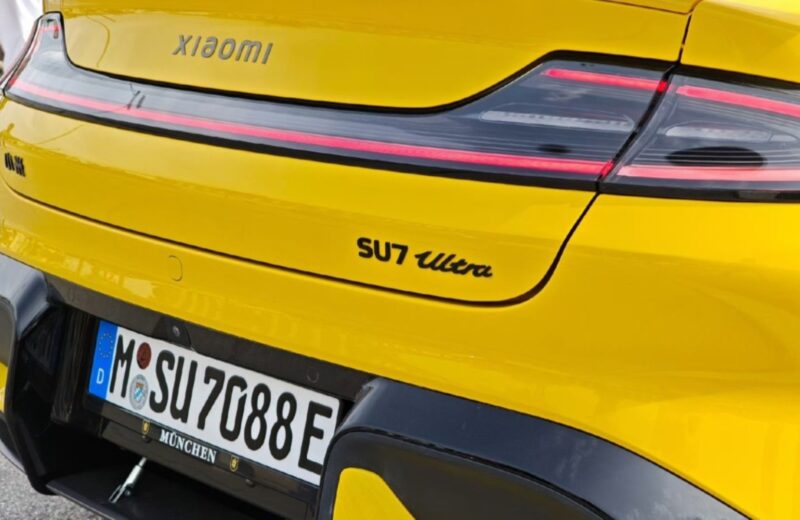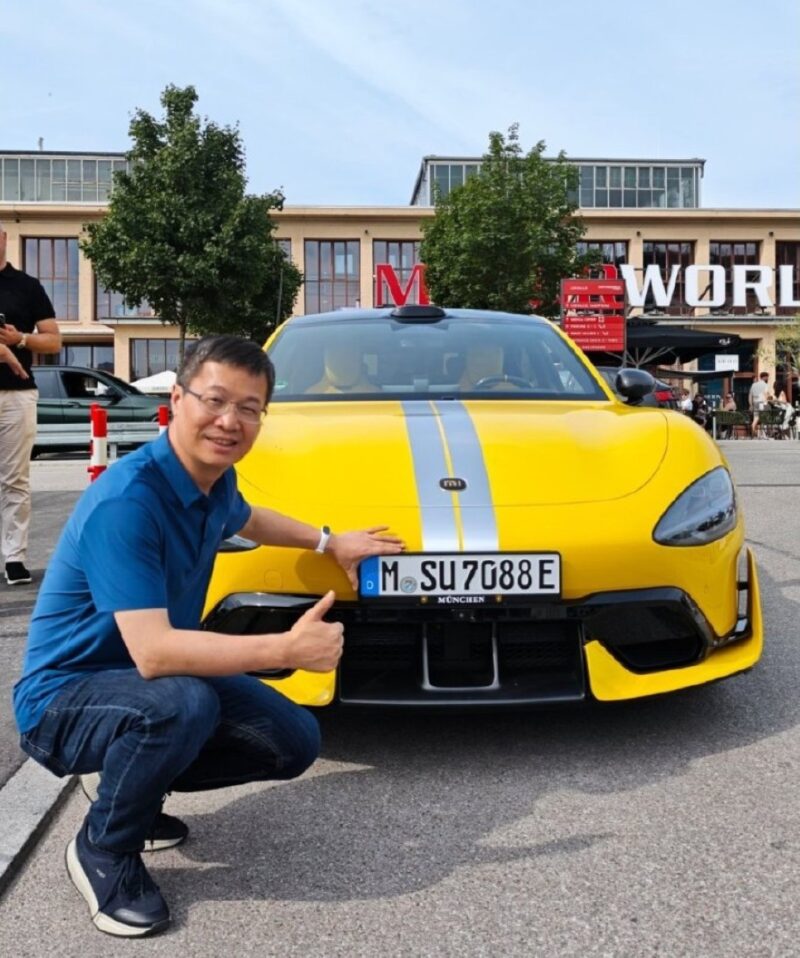Xiaomi has completed its first legally registered public road test of the SU7 Ultra in Europe. According to a Weibo post by Xiaomi Group President Lu Weibing, a production-spec SU7 Ultra has been registered in Munich, Germany. The vehicle, registered under the license plate “M SU7088E,” is the first SU7 model to operate on European roads with full regulatory approval.
The Xiaomi SU7 Ultra measures 4,997 mm in length, 1,963 mm in width, and 1,455 mm in height, with a wheelbase of 3,000 mm. The vehicle has a curb weight of approximately 2,205 kilograms in its track-oriented configuration and a drag coefficient of 0.195. These dimensions place it within the mid-to-large electric sedan category, with a wheelbase comparable to that of full-size sedans.
It accelerates from 0 to 100 km/h in 1.98 seconds and reaches a top speed of 350 km/h. The vehicle uses carbon-ceramic brakes and a chassis calibrated through previous track testing, including at the Nürburgring. Power is supplied by a 93.7 kWh CATL Qilin II battery operating at 897 volts, which delivers a CLTC-rated range of up to 630 km.
On June 26, Xiaomi announced that the SU7 Ultra prototype had become the third-fastest car on the Nürburgring Nordschleife, completing a timed lap in 6 minutes and 22.091 seconds. A separate mass-production version, equipped with Xiaomi’s optional “Track Professional Package”, completed the same track in 7:04.957, which the company described as the fastest lap by a production electric sedan at the time of testing.
Based on the prototype’s configuration, Xiaomi developed the SU7 Ultra Nürburgring Limited Track Edition, limited to 100 units worldwide. Priced at 814,900 yuan (approximately 113,500 USD), this version includes factory-installed components such as carbon fibre aerodynamic parts, a fixed rear wing, racing seats, and a partial roll cage.
Xiaomi CEO Lei Jun recently stated that the company’s overseas market expansion is expected to begin in 2027. Separately, Xiaomi has registered a production-spec SU7 Ultra in Europe for technical validation purposes. This activity aligns with Xiaomi’s broader plan for global expansion and can be seen as part of its preparation for entering overseas markets. The vehicle used for testing is not part of any customer delivery batch.
Follow us for ev updates









